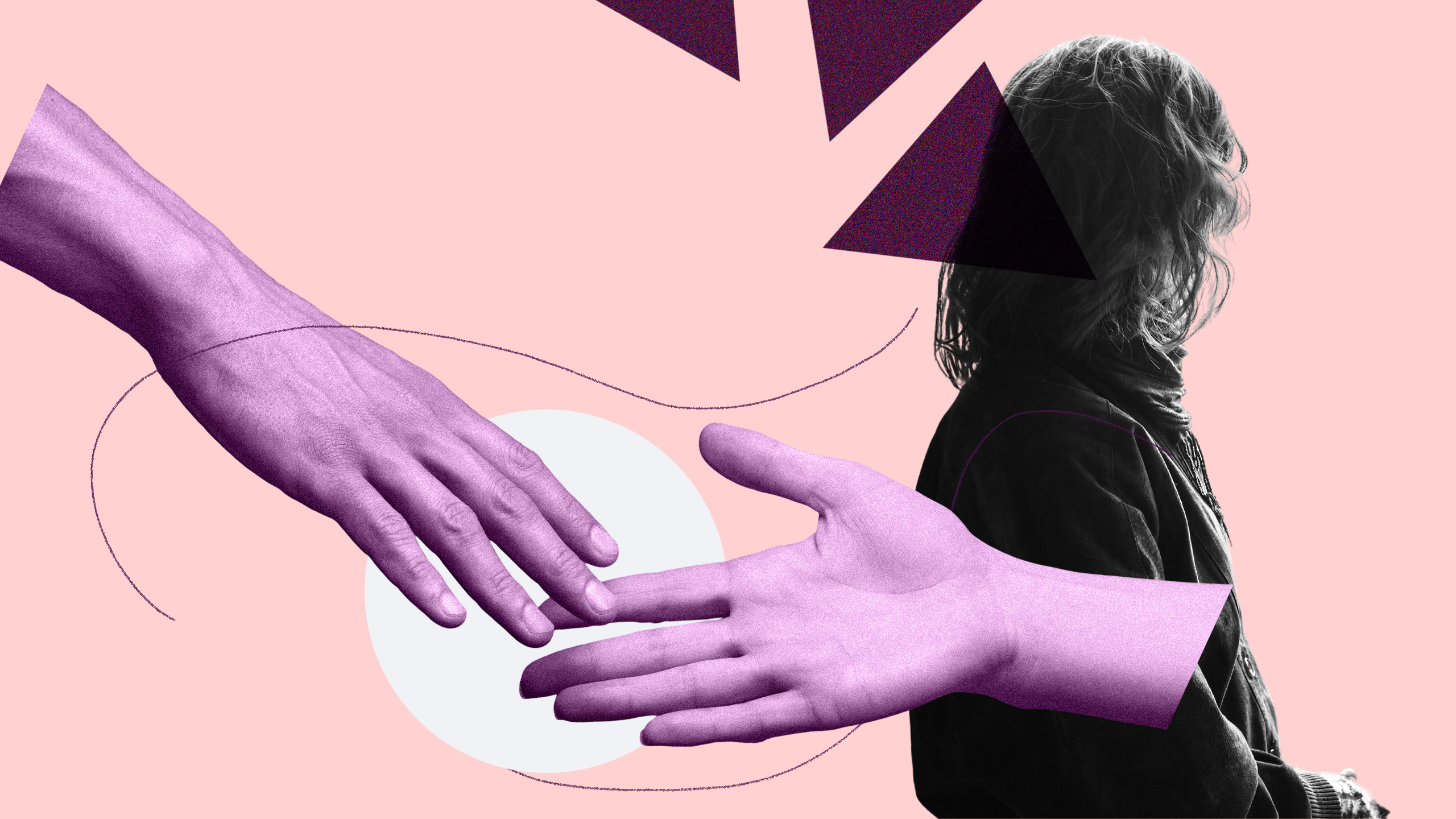“Moving from surviving to thriving is possible,” says Jordan Sullivan, 61, of Toronto. Sullivan is the coordinator of an intensive research project organized by the Community-Based Research Centre (CBRC), which explores the lives and ongoing needs of survivors of conversion therapy. Conversion or “reparative therapy” is a subset of what the centre calls SOGIECE: sexual orientation, gender identity and expression change efforts.
Many of the gains that the LGBTQ2S+ community has made in the last decade—being able to love whomever you wish, being able to live in your authentic gender—are out of reach, say survivors of the practice, due to lasting trauma. Many survivors experience shame and self-hatred years after so called “treatment.”
When survivors do reach out for help with addressing the lasting impacts of SOGIECE, they find providers unhelpful, inexperienced or unaware of the impact such treatment can have on those who are subjected to it.
Conversion therapy is now outlawed across Canada and at least six other nations. Partial restrictions exist in eight other countries, including 20 states and Washington, D.C., in the U.S., (in those states the ban is only in regard to minors).
Canada’s own ban on conversion practices went into effect in January. The House of Commons and Senate passed Bill C-4 unanimously in November 2021, and the legislation received royal assent on Dec. 8.
Even as lawmakers and healthcare experts speak out against efforts to change a person’s gender or sexuality, the CBRC’s 2SLGBTQ+ SOGIECE/Conversion Therapy Survivors Support Project revealed that conversion practices have had a long-lasting impact and continues to cause harm, according to Sullivan, who is trans, and himself a survivor.
“I’ve been aware of these practices since the 1970s, when I was in my teens, and now here I am in my early 60s, and I’m seeing society start to talk about how to create supports for people. That’s just mind-boggling to me. It’s long past time that we create these supports.”
Sullivan’s study included the perspectives of 270 LGBTQ2S+ people, all of whom were 15 years old or older. Sullivan and his co-authors found “an alarming lack of support” for participants after they endured either subtle or blatant pressure to change their gender identity or sexual orientation.
“Participants felt that what they survived wasn’t ‘as bad’ as experiences of conversion therapy they saw reflected in documentaries or in the media.”
For example, researchers found that many participants expressed negative feelings about themselves, such as shame, self-doubt and lack of confidence—which often manifested as internalized homophobia, transphobia and biphobia.
Some participants also struggled to name what they had gone through: they felt that what they survived wasn’t “as bad” as experiences of conversion therapy they saw reflected in documentaries or in the media, and, as a result, they denied they were, in fact, survivors.
Several participants talked about the inequities they experienced, from limited employment opportunities to poverty, as well as social and religious exclusion. Others still experienced physical violence or feared becoming a target of violence because of their sexual or gender identity.
Difficulty forming relationships, dating, achieving intimacy with others and simply connecting with their physical body and sexuality in healthy ways were other common findings. One survivor reported that a mental health practitioner’s denial for hormone replacement therapy when they were younger had a devastating impact: “If he had gone ahead and done his job, then I would look quite significantly different today,” they said. “Living in a body that I feel comfortable in and that doesn’t feel like a prison would be huge.”
Sullivan was initially hired to begin the survey by Generous Space Ministries, a nonprofit LGBTQ2S+ Christian ministry. “I will be forever grateful to them for initiating this significant research project,” he says.
After the organization closed in May 2021, he was able to continue and expand his work thanks to Travis Salway from Simon Fraser University, Nick Shiavo from No Conversion Canada and Michael Kwag from CBRC.
“Jordan’s wealth of personal and professional lived experiences regarding conversion practices, and relationships with faith-based and 2SLGBTQ+ communities, meant that even though he didn’t come to us from academia … he was extremely well prepared to lead this project,” says Kwag, CBRC’s acting executive director. “The work to better understand the complexities of queer and trans conversion practices and SOGIECE, and their horrifying impact on survivors, is so difficult and draining, it truly takes someone with his empathetic leadership.”
The federally funded project was conducted online and in focus groups over a period of more than one year, from February 2021 to March 2022. Sullivan and his co-researchers sought to better understand survivors and learn how best to help them on the road to recovery.
While the project focussed on uncovering what types of support survivors needed, Sullivan says, researchers also heard about the lasting impact of “treatment” on survivors. “The most common impacts were shame, anxiety, depression, difficulty celebrating your 2SLGBTQ+ identity, difficulty in intimacy and relationships with others,” says Sullivan. “I found it very interesting that shame was identified by 83 percent of participants as the most commonly experienced impact.” Shame was also the most commonly listed barrier to recovery. “And that’s the one that I probably struggle with the most,” Sullivan says.
An overwhelming majority of survivors said one of the supports they needed most were resources to help spread awareness that even small, subtle efforts aimed at changing someone’s orientation or identity are just as harmful as the most blatant ones. They also listed the following as important: access to affirming therapists experienced in a variety of trauma, free or subsidized therapy, education for the mental health community about SOGIECE/CT and a multidisciplinary support system for complex trauma.
Sullivan told Xtra coordinating the survey forced him to deal with his own trauma.
“I came to recognize that I have been deeply harmed by these practices,” Sullivan says. “For me, it was at the hands of religious leaders. For others, it was at the hands of healthcare professionals or from family, friends or wider society, or all three. But most of us survivors don’t recognize that we’ve been harmed, and until we recognize the harm that’s been done to us, then we’re not ready to reach out for help.”
Sullivan, who came out as lesbian at 33, revealed he’s only recently felt ready to find help as a result of coordinating this research. “It’s made me reach out,” he says. “I now have a therapist I just started with, about a week ago, to begin working on the trauma and the impact of what it’s had on my life.”
“This project, for me, has been very healing, but it’s been eye-opening, too,” he told Xtra. “One of the most important things, is something many communities have said: ‘Nothing about us without us.’”
One area Sullivan is excited to talk about is the positive experience he and other survivors share.
“When we walk away from non-affirming people, non-affirming spaces and places, we find hope. We can recover, we can live authentically. We can be fully present in our lives, and we can build healthy friendships and engage in intimate relationships. But there are no shortcuts. It’s a challenging journey, for sure. I’m in the midst of mine.”
Sullivan says CBRC is using this research as a launchpad to create a new resource: a knowledge hub utilizing SOGIECE data and information. Its goal is to further develop a key part of recovery: Connection and storytelling.
“Hearing from someone who has a similar experience to us makes all the difference in the world for people who are survivors, who have that internalized homophobia, biphobia, transphobia, who have to deconstruct and reconstruct from all the myths that they’ve been told around sexual and gender minorities,” he says. Sullivan says another one of the things he’ll be working on in the next year is supporting survivor initiatives, such as CT Survivors Connect.
If he has any regrets at all, Sullivan said it’s that their research was not intersectional enough. ”I know we had good representation from survivors who are BIPOC, but they were too few in number to do focused, group-level analyses in this report,” he says. “Which is why continued research needs to be done.”


 Why you can trust Xtra
Why you can trust Xtra


